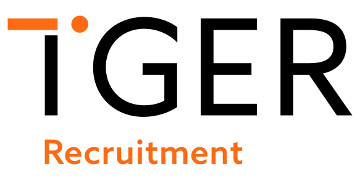I recall my first management role. I took on a struggling team to build my skills and progress to the next level. I was explicit: I wanted a promotion, and we seemed to have a mutual understanding.
My task was to turn the team around, address performance issues and, most importantly, revamp the team to deliver efficiency and impact.
After 18 months, I had successfully recruited new talent, introduced fresh processes, and received recognition for my efforts.
However, as I started to campaign for promotion, I was informed that I needed to develop different skills and perhaps return to an individual contributor role.
My accomplishments were overlooked, and I was given a new obstacle to overcome to secure my promotion.
Board-ready women 'overlooked' by executive search companies
Time to break the glass ceiling for good
Glass ceiling is 'outdated', Ernst & Young survey of 1,000 women reveals
Meanwhile, now that the team was performing well, I was expected to hand over the reins to a male colleague.
Many of the women I know have similar stories. And as the world continues to grapple with one crisis after another, more women are feeling the brunt of the impact in the workplace.
Analysis by the TUC has shown that women in the UK now work for free two months of the year compared with their male peers.
The rise of the gig economy and artificial intelligence, as well as macroeconomic conditions like inflation and stagnant wages, are having particularly negative impacts on women in the workforce, as they are typically overrepresented in the jobs most at risk of automation and lower pay.
Despite best intentions, the corporate world’s response to under-representation can often create new issues.
Targets create a competition among women to fill a perceived quota, and the successful ones may suffer from ‘queen-bee’ behaviour.
This is a form of behaviour based on deeply ingrained socialisation, where women are pitted against each other.
As the world faces crises, the fewer opportunities that are available exacerbate queen-bee behaviour and undermine collective progress.
It is time to move beyond the glass cliff, where women are often recognised only in times of crisis and not for steady-state leadership, and instead embrace a glass balcony, where there is room for all of us.
The glass balcony approach is based on maximum transparency and inclusion. It has helped me to identify and nurture talent within my teams, regardless of gender.
By ensuring I know what success means to my people I can focus on equitable outcomes. This goes beyond equal access.
Equality focuses on everyone being treated the same but I’m more concerned with people reaching their full potential.
I truly believe this individualised approach will ultimately benefit any organisation by ensuring that it has an engaged, diverse and high-performing workforce.
Organisations can take concrete actions to implement a glass balcony such as applying transparency and accountability measures within all the key people processes.
They can offer appropriate support and resources to all but particularly target those who are statistically less likely to be able to navigate complex and vague structures.
For example, women rarely negotiate pay compared with men; how can we equip women with these skills while also preparing the organisation to give them a fair opportunity to be heard?
Organisations should also consider how they can use leadership programmes and formal personal sponsorship to nurture relationships across gender identities, building on skills that some people have due to childhood experiences and interactions.
For instance, I am a ‘daddy’s girl’ and had strong relationships with my older brothers and uncles. I was the only one of the girls who took an interest in the family business and so early on I witnessed male-dominated business interactions and engaged in these conversations.
I believe that has helped me to navigate career conversations and facilitated strong relationships with my male sponsors and mentors over the years.
This is especially relevant and important in a post #MeToo business environment where the rules of engagement seem to have changed without a clear blueprint for the future.
It appears the perpetual state of crisis the world finds itself in is set to continue for the foreseeable future. However, this is no reason to delay creating the environments and situations that promote fairness and equity for all.
Remember that equity is about outcomes not inputs.
There is no quick fix and, yes, it’s a journey we have been on for a long time with shifting landscapes and seemingly endless hurdles to drive change, but we have made some progress and if we continue to commit to action together, we will make change today and for tomorrow.
Roianne Nedd is global director of diversity and inclusion at Oliver Wyman
This article was first published in the May/June 2023 issue of HR magazine. Subscribe today to have all our latest articles delivered right to your desk.










